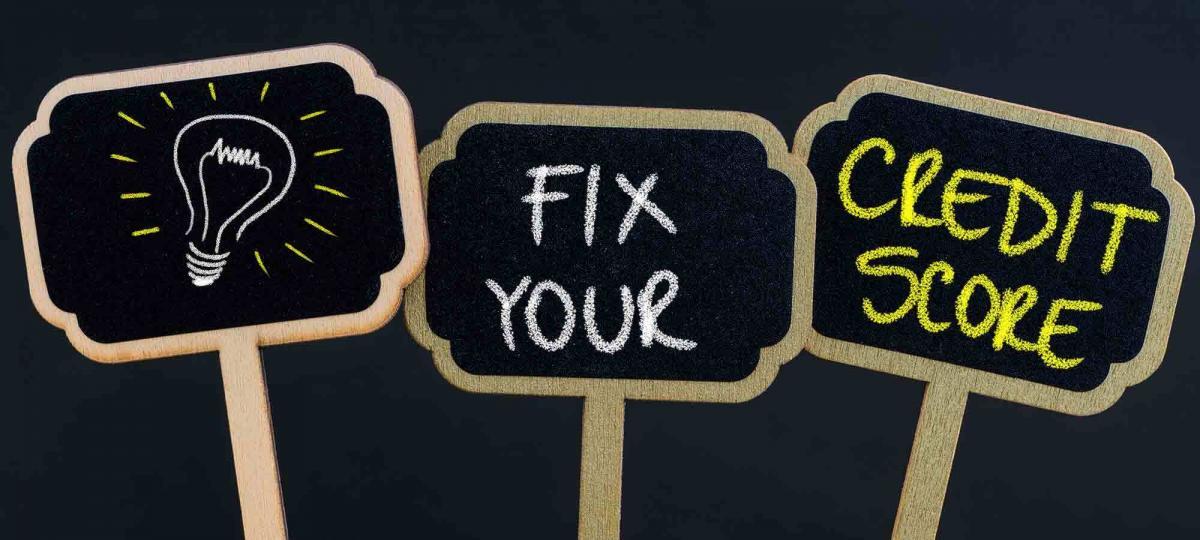A bad credit report can cost you thousands of dollars in interests, penalties and fees and many people have asked us “how do I fix my credit score?”. It may also block you from getting a promotion or possibly from getting a promotion or the best deals for a dream car. Here are tips to answer your question.
Request for free copies of your credit file
…from the major credit reporting bureaus in the country. It is important to check your file if you want to start repairing your credit score.
Examine your files to know exactly the areas that you need to work on. For example, if you have a terrible credit history, it will be helpful if you can check which accounts you have missed paying, and when you started doing so. If you have done poorly because you always maxed out your credit cards, it may be time to refer to those accounts so you will know which card to stop using for the moment. At the same time, it would also help you check whether you have defaults on old accounts so you can settle them as soon as you can.
Dispute credit errors
It is your right as a consumer to get correct credit report. The law allows you to dispute errors by sending a dispute letter to the credit bureau that listed inaccurate entries.
Remember that errors are costly. They can seriously hurt your credit score and bring it down by over a hundred points. What’s worst, you may not qualify for low interest loans simply because of data entry errors or failure on the part of the creditor to update your credit information. It is also a good opportunity for you to correct wrong information that indicates identity theft or credit card fraud.
Minimise your credit card balances
Don’t go beyond 30 percent of your credit limit. Pay all your balances for the month, and when you use a card, make sure that you keep those card balances low to boost your score. If you are having a hard time in paying multiple credit card balances, you can get a personal loan to consolidate them—not only to boost your score but to save money on interests. It is also easier to remember repayment schedule because you only have one lender to think of, so your chances of missing payment is very low.
Lower your utilisation rate
It is not enough that you pay balances in full each month. If you have a higher utilization ratio than 30%, they will still add weight to your monthly balances. One of the best ways to deal with it is to make sure that you make multiple payments throughout the month, to lower your balance. But, not all credit card providers allow this. So, it is important to stick to your credit limit at all times.
Will paying nuisance credit card balances fix my credit score?
Do you have small balances on a number of credit cards and you haven’t paid them yet?
If you want to boost your score, eliminate all the balances on your cards. Instead of charging $50 on credit card A and another $50 on credit card B, why don’t you just charge them all in one card with a low interest rate, and pay it all off each month?
Don’t get old accounts off your credit report
True, you want to get rid of negative items because they are bad for your report. But, your score will improve when the oldest paid account remains there. The old debt on your credit report like a mortgage or car loan is not bad, so don’t be in a hurry to get it removed from your file the minute you get your debt paid off.
Most of the negative items are really bad for your credit score. But, they just disappear from your credit file after seven years so don’t argue to get your old paid accounts eliminated from your file. Even if it showed that you missed a lot of payments—just keep them there. At least, you were able to show that you managed to repay after all.
Then of course, there are good debts. A good debt is the account that you’ve handled well and paid on time. When it appears on your file—your score will be better simply because you have a long history of good debt. Lenders will also look at your application favorably knowing that you have been a responsible borrower for a long time.
How do I fix my credit score when I have good and bad debts?
In a nutshell, leave your old debts alone, pay all your balances. Don’t close accounts, especially those where you had solid repayment record—because it will eventually boost your score and increase your chances of getting favorable loans. For a shortcut to fix credit history, contact Clean Credit.





